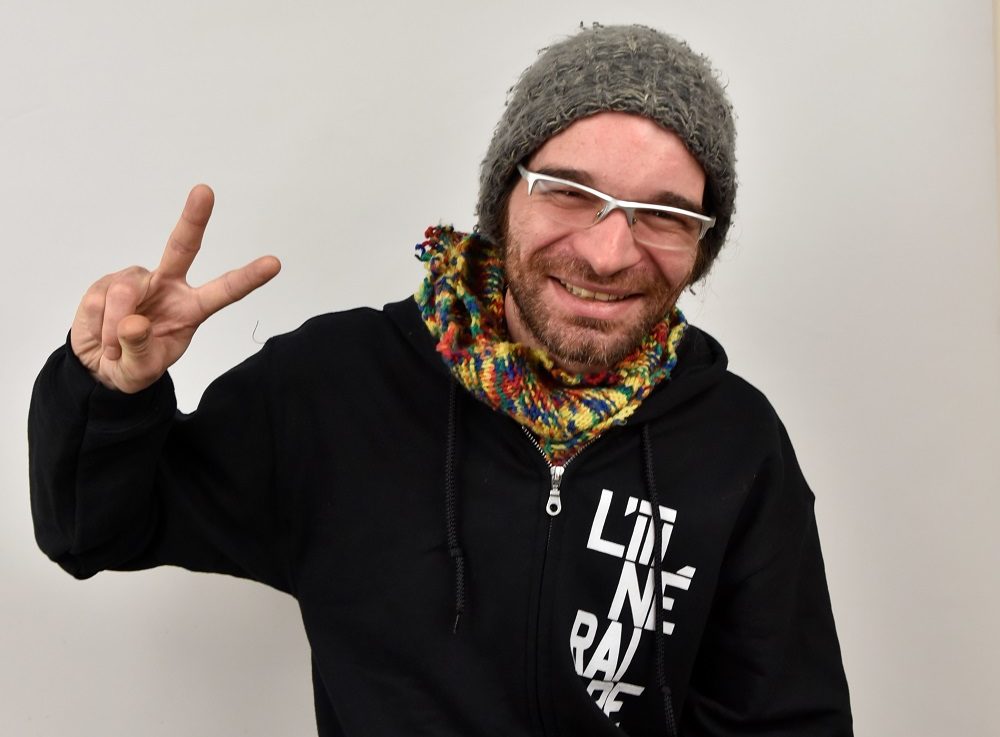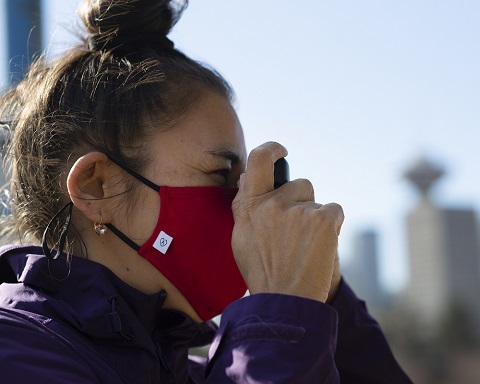Simon lost his support network when he was eight years old, somewhere in the middle of his parents’ break-up. They had separated and were using their children as bargaining chips. He says it was “the end of this perfect, normal life”. He became rebellious and was expelled from the school he loved. His world collapsed.

At a specialised secondary school, he began smoking pot to calm his anxiety. “The more I smoked, the less I wanted to go to school,” he says.
He left school, did odd jobs, and began taking drugs regularly. He ended up on the street for the first time when he was sixteen years old. His parents “reached their limit” and his father went to the DPJ [Canadian Youth Protection Services] for help. Simon found himself in a group home. On his first weekend there, in need of a fix, he tried to run away with some other boys. They attacked the night security guard. “It didn’t work,” he says. “We got ourselves caught.” Convicted and labelled as violent, he was placed in solitary detention.
Simon spent eight months locked in his room 20 hours a day, forbidden from any activities with other people. “It was wearing me down, being in my room. I felt like I was in a cage.” He was then transferred to another centre, where he took bakery lessons and got his high school diploma.
By then, he was clean and full of good intentions, but says “the cycle started again quickly”. He was caught in possession of crack cocaine and sentenced to six months’ detention. The court gave him a choice between the group home and treatment at Portage, a drug rehab centre. He didn’t hesitate: “There are no fences by the side of a lake!” He was completely committed to his treatment, and stayed for a further seven months voluntarily. He began to understand and to get to know himself, but upon leaving quickly ended up back on the street and on drugs. This time that lasted for two or three years.
Going to his father’s home
One day, he bumped into his father. “I wasn’t doing well, to be honest. He saw it in my face. That must have been hard for a father.” His dad asked, “Simon, wouldn’t you like to come up north for two or three days, just to relax?” Simon went on to live in Sainte-Adèle for eight years. “I needed a break. It was the beginning of a wonderful life for me.” He worked in the village, and made a new group of friends. “Campfire, a guitar, no judgements – what could be better?”
He started a family, and had two little boys. But he encountered another setback when his father died, six years ago. “He was my mentor,” he says. “From there, things snowballed rapidly.”
He lost his job; his friends drifted away, his girlfriend left him. He suffered from depression. “I had lost everything, I didn’t want to go on. I ended up on the street, again! I found that hard, because I had tasted happiness.” He fell back into his old habits and his old friends in Montréal. He began committing bank fraud, and was arrested.
The kick up the backside
Then he met Jean-Paul, a vendor for L’Itinéraire. “It took five minutes. JP called L’Itinéraire and said, ‘I’m sending someone to you, he wants to be a vendor.’”
Simon got off the street and got into L’Itinéraire. “They put five newspapers in my hands and said, ‘welcome home’. It was one of the first times I had gone into a place without wondering what I could steal. It was like a wave of love, a breeze of human warmth. The fact that they trusted me, gave me newspapers and bus tickets, that they made time for me – I thought that was cool.”
He sold his five newspapers in three minutes. “I was self-conscious at first, and I started to smile. The world smiled back at me, spoke to me, wished me good luck. I was where I was supposed to be. It was what I had needed. I am recovering from depression just from people’s smiles. Not only do I have a job, with a goal in life, but I also have people who listen to me, who support me… And I also have things I can bring to L’Itinéraire: it’s a give and take, and I am very involved”. He is involved in sales, but also takes part in the life of the organization and in writing for the magazine. “I have rediscovered my pride; it is the only cure for shame.”
Thanks to L’Itinéraire, he has also found a home. “L’Itinéraire probably saved my life,” he says. “Jean-Paul gave me a kick up the backside that I couldn’t have given myself. He doesn’t know that, though. He’s just over there, smiling, selling his papers…”
Translated from French to English by Louisa Devine.




















